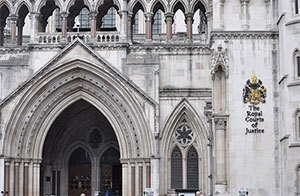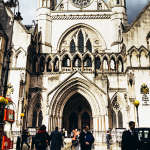Fortunes at the Bar remain sharply split between haves and have-nots, with new research projecting just over 2,000 barristers now earning less than £30,000 annually, while at the other end of the spectrum, 2,562 are on course to earn over £240,000 during the current financial year.
The projections from the Bar Council indicate the top-earning segment of advocates between them on course to earn well over £600m a year, with the Bar in England and Wales as a whole generating over £1.6bn, including the earnings of employed barristers.
The projected breakdown of barrister earnings in England and Wales in 2016/17 is contained in the Bar Council’s request to hike the practising certificate fee (PCF) for 2017/18 by 12% to plug a hole in the body’s pension fund.
Bar Council figures estimate that the largest group of the 15,800 practising barristers in England and Wales earned between £90,000 and £150,000 a year, covering 3,412 advocates. The next most common earning group are those generating between £60,000 and £90,000 annually. Just under 3,000 barristers earn between £30,000 and £60,000 a year, a camp that includes a substantial number of employed barristers. A final group of 1,748 advocates earned between £150,000 and £240,000 a year.
The top earners will shoulder much of the increased PCF, with those earning more than £240,000 paying an additional £198 to take their annual dues to £1,850. Those earning less than £30,000 will see a £13 increase to £123.
The rises, which will generate an additional £1.3m a year to plug a deficit in a now closed pension scheme, were approved this month by the Legal Services Board. The Bar Council is proposing to generate £10.27m for permitted purpose operating costs for 2017/18, with a total income of £12.34m including additional levies and pension contributions.
The figures illustrate the wide disparities in barrister earnings at a time of intense pressure on criminal work while commercial sets are booming. Top commercial silks can earn well over £2m a year.
A Bar Council spokesperson said: ‘The 12% fee increase is a proactive strategy to deal with a historical issue (a pension deficit) before it impacts on many future generations of barristers. The additional funds raised from this increase will be ring-fenced purely for the pensions deficit.
‘As part of this process, we forecast the likely funds raised from practising certificate fees. We estimate the effects of changes in the profession, including the size and trends in fee earnings, to forecast the fee income that will arise. We are unable to predict the outcome precisely.’
tom.baker@legalease.co.uk











